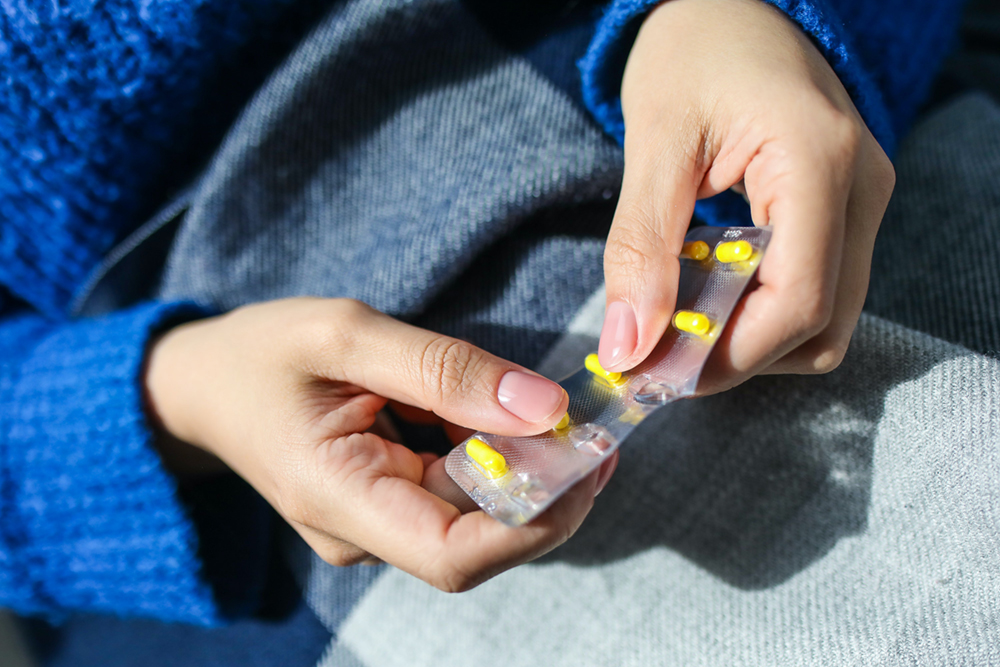
Could a Fungus-Derived Compound Reduce Hyperinflammation in Severe COVID-19?
Angela Betsaida B. Laguipo, BSN via News-Medical – Drug repurposing for COVID-19 helps scientists identify potential drugs to treat COVID-19 without going through the rigorous process of formulation, clinical trials, and gaining regulatory body approval. Many of the drugs used for COVID-19 today were initially developed for other pathogens.
Early-stage trials from scientists at the University of Pennsylvania, USA, demonstrates that cyclosporine A (CSA), a calcineurin inhibitor that modulates cytokine production, may have potential antiviral properties against coronaviruses.
In the study, which appeared on the medRxiv* pre-print server, the researchers aimed to test whether a short course of CSA can help combat COVID-19.
What Is Cyclosporine A (CSA)?
Cyclosporine is a natural cyclic polypeptide immunosuppressant isolated from the fungus Beauveria nivea. Cyclosporine’s exact mechanism of action is unknown, but scientists believe it may involve binding to the cellular protein cytophilin, inhibiting the enzyme calcineurin.
The complex CSA-cyclophilin interferes with a complex of phosphatases known as calcineurin that plays an imperative role in the immune response. The drug acts as an immunosuppressant commonly used after an organ transplant to reduce the immune system’s activity, preventing organ rejection.
COVID-19 and Cytokine Storm
The SARS-CoV-2 infection varies in severity, with a majority of patients experiencing mild to moderate illness. Severe pneumonia occurs in about 15 percent of cases and drives mortality. People who are at a higher risk of developing severe COVID-19 include the elderly, those who have compromised immune systems, and those with comorbidities.
COVID-19 is characterized by immune dysregulation or a cytokine storm, an orchestrated response that involves infected cells, macrophages, T cells, and other immune cells. The cytokines or chemokines are produced and can affect the respiratory tract, causing widespread lung inflammation.
Further, severe COVID-19 patients tend to have high interleukin 2 (IL-2), IL-7, IL-19, tumor necrosis factor (TNF), granulocyte colony-stimulating factor (G-CSF), C-X-C motif chemokine ligand 10 (CXCL10), monocyte chemoattractant protein 1 (MCP1), and macrophage inflammatory protein (MIP) in the blood.
Increased levels of these cytokines, C-reactive protein (CRP), and ferritin, accompanied by lymphopenia, are usually seen in severely ill COVID-19 patients. These are hallmarks of patients experiencing macrophage activation syndrome.
The Study
The researchers tested whether a short course of treatment with CSA was safe for COVID-19 patients. They treated ten hospitalized but non-critically ill patients with CSA at an initial dose of 9mg/kg/day orally divided into dosing every 12 hours.
The researchers conducted a therapeutic drug monitoring on the second day, and every Monday, Wednesday, and Friday during active dosing. The succeeding cyclosporine dosing was adjusted to target a trough level of 200 to 300ng/mL without a maximum dose level.
During the treatment, five patients reported adverse effects, but none were serious. None of the enrolled participants needed intensive care unit-level care, and all patients were able to return home from the hospital.
The researchers found that the CSA treatment was linked to reduced cytokine and chemokine levels in the blood, both of which are associated with hyper-inflammation in COVID-19.
“In conclusion, short courses of CSA appear safe and feasible in COVID-19 patients requiring oxygen and therefore, may be a useful adjunct in resource-poor or resource-limited health care settings,” the team concluded in the study.
One advantage of CSA is the cost-effectiveness of the treatment since drug acquisition costs are low, and it is widely available in oral pill and liquid formulations. Hence, the team showed that CSA is a potentially effective treatment for SARS-CoV-2 infection. It has anti-inflammatory properties, is widely available, low cost, and safe to use.
With further research that corroborates the team’s findings, CSA may prove a cheap, safe and effective therapy for COVID-19 patients.
*Important notice
medRxiv publishes preliminary scientific reports that are not peer-reviewed and, therefore, should not be regarded as conclusive, guide clinical practice/health-related behavior, or treated as established information.
This article has been modified. To read the original article click here.






